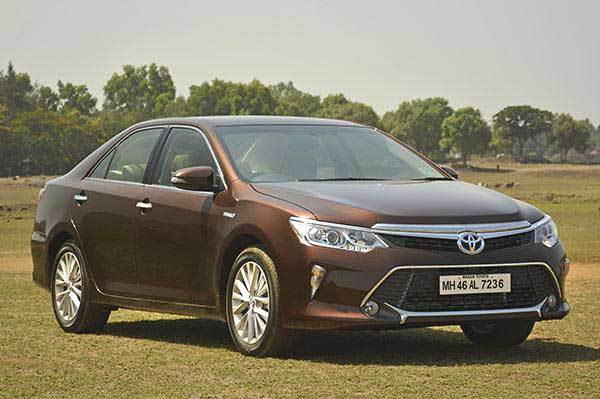For a very long time, terms like clean energy, battery-powered vehicles and zero exhaust emissions seemed as alien to India as pothole-free roads, speedy court trials and low inflation levels. Now it seems like things could change.
The Toyota Camry Hybrid, which was first launched in 2013 and re-launched with a facelift in the first week of May 2015, has so far accounted for 80 percent of Camry sales since its launch. According to the carmaker, the Camry hybrid has sold more than 280 units in 50 days, as against 720 units sold in the whole of last year.
However, this sales volume is still insignificant compared to other ‘conventional’ competitors and highlights an important question: Is India ready for hybrid cars?
Honda and Toyota have had a tough time selling their hybrid offerings in the past. The Honda Civic Hybrid was launched in 2008 at Rs 21.5 lakh. By the end of March 2009, only 297 hybrids were sold against the 5,656 conventionally-powered Civics. The Civic Hybrid was discontinued after that. The Prius, launched in 2010 at Rs 27-29 lakh, didn’t do well either. Only 167 were ever sold.
There are a number of reasons why hybrid cars did not sell well in India. The biggest problem was that they were all CBUs and hence high import duties made them expensive to buy. Incidentally, the running costs are also typically higher than an equivalent diesel-powered car.
For instance, the running cost of the Camry Hybrid which does 19.16kpl (as per ARAI), comes to Rs 3.9 per kilometre (see box). On the other hand, the diesel Skoda Superb that returns 17.2kpl (again, ARAI), costs Rs 3.4 per kilometre. The Superb turns out to be a cheaper car to run as it has lower diesel prices working in its favour. As always, ARAI figures are merely indicative, and both cars will return much lower figures in the real world.
Carmakers are doing all they can to make hybrid cars seem like an attractive investment. Toyota has, for example, decided to assemble the Camry Hybrid locally, making it the first carmaker to assemble a hybrid in India. This has helped in pricing it closer to its conventional sibling, with a difference of under Rs 6 lakh between the two. The positive response is evident in the sales ratio, proving that Indians have shown a changed perspective towards hybrid cars.
That said, a top-spec Superb diesel costs Rs 27.06 lakh, while a Camry Hybrid has a higher sticker price of Rs 33.68 lakh (both prices are ex-showroom, Mumbai). For perspective, Skoda sold over 1,200 Superbs (petrol and diesel) in the last financial year alone. Hybrids do have benefits over diesel cars such as a smoother drive, much better refinement and good acceleration in stop-start conditions, making them perfect for city driving.
Additionally, the government rolled out FAME India – Faster Adoption and Manufacturing of Electric vehicles – in April, to provide impetus to the nascent hybrid and electric vehicle industry here, and also boost the government’s ‘Make in India’ programme. Under the scheme, incentives have been introduced for all categories of hybrid and electric vehicles of upto Rs 29,000 for two-wheelers and Rs 1.38 lakh for four-wheelers.
Increasingly, automakers have realised that acceptability among Indians for hybrid cars is rising and despite the sales numbers being insignificant, the potential is much higher now than ever before.
In February, BMW launched its Rs 2.29 crore i8, a petrol-electric plug-in hybrid with an all-wheel drive system; the first plug-in hybrid vehicle from the automaker. Although sales of the i8 won’t be anything to write home about, it is still an important addition to the slowly evolving hybrid car space in India. Maruti seems to have caught on and is rumoured to be launching a hybrid version of its best-selling Swift hatchback called the Range Extender that was earlier under development for a pilot project for the Government of India. Let’s see if it does well in the hybrid space.
So with the increasing interest of car buyers coupled with incentives by government, the time does seem right for car makers to enter the largely-ignored electric and hybrid car market in India.
| Hybrid vs Diesel: Narrowing the gap | ||
|---|---|---|
| Camry Hybrid | Superb 2.0 TDI A/T | |
| Vehicle price | Rs 33.68 lakh | Rs 27.06 lakh |
| ARAI certified mileage | 17.2kpl | |
| Fuel type | Petrol | Diesel |
| Fuel price (in Mumbai) | Rs 74.78 | Rs 58.37 |
| Cost of running (per km) | Rs 3.9 | Rs 3.4 |
All prices ex-showroom, Mumbai



Comments
Member Login
Personal Details
No comments yet. Be the first to comment.